The story begins... with a plague that kills one in three people
That’s 2/3rds of a Thanos Event https://abs.twimg.com/emoji/v2/... draggable="false" alt="😮" title="Face with open mouth" aria-label="Emoji: Face with open mouth">
https://abs.twimg.com/emoji/v2/... draggable="false" alt="😮" title="Face with open mouth" aria-label="Emoji: Face with open mouth">
Though probably not random, I’m guessing wealthy people died less...? Or maybe things were different then. Life before germ theory
That’s 2/3rds of a Thanos Event
Though probably not random, I’m guessing wealthy people died less...? Or maybe things were different then. Life before germ theory
In the 13th and 14th centuries, “a web of credit was spun out across Europe, northward to London, east as far as Constantinople, west to Barcelona, south to Naples and Cyprus.”
At the heart was Florence, which simultaneously produced some of the finest painting and architecture
At the heart was Florence, which simultaneously produced some of the finest painting and architecture
The Medici bank was founded in 1397 by Giovanni di Bicci de’ Medici. (Bicci was his dad Averado’s nickname). It collapsed in 1494
On his deathbed, Giovanni told his children to stay out of the public eye.
His son Cosimo disobeyed this *dramatically* https://abs.twimg.com/emoji/v2/... draggable="false" alt="😂" title="Face with tears of joy" aria-label="Emoji: Face with tears of joy">
https://abs.twimg.com/emoji/v2/... draggable="false" alt="😂" title="Face with tears of joy" aria-label="Emoji: Face with tears of joy">
On his deathbed, Giovanni told his children to stay out of the public eye.
His son Cosimo disobeyed this *dramatically*
After Cosimo was Piero, known as Piero il Gottoso or “Piero the Gouty”. Many male members of the Medici family suffered from gout- hereditary joint pains.
Piero ran the show for 5 years before handing the family fortune to his son, LORENZO IL MAGNIFICO,,, who is now a board game
Piero ran the show for 5 years before handing the family fortune to his son, LORENZO IL MAGNIFICO,,, who is now a board game
Lorenzo was 20, aspired to aristocracy. He wrote poetry (it was good, supposedly). He sponsored Da Vinci and Michelangelo. But he wasn’t particularly good for the family bank, and he presided over a decline and died of gout and a variety of ailments at 43
Finally, after Lorenzo came (another) Piero, described as Piero the Unfortunate. He was into Florentine football (??), fled the city when French troops arrived in 1494, & drowned when crossing the Garigliano river north of Naples. His brother Giovanni became Pope Leo X
Context is interesting. The Medicis, particularly Giovanni, “must have seen themselves as coming *afterward*, [...] not the beginning of a golden age.” They came after double-entry bookkeeping, the bill of exchange, the letter of credit, the deposit account
They would also have been very aware of coming after larger banks - the Bardi & Peruzzi banks had amassed larger fortunes (?!?!), but both collapsed in the 1340s, when  https://abs.twimg.com/emoji/v2/... draggable="false" alt="🏴" title="Flag of England" aria-label="Emoji: Flag of England">’sEdward III reneged on huge debts. Giovanni must’ve had memories of past glory and a sense of precariousness
https://abs.twimg.com/emoji/v2/... draggable="false" alt="🏴" title="Flag of England" aria-label="Emoji: Flag of England">’sEdward III reneged on huge debts. Giovanni must’ve had memories of past glory and a sense of precariousness
Florence itself was the product of a messy process, lots of upheaval and revolt. Idk what to think about this.
My takeaway here is that life is messy, and cities are products of much larger processes and forces beyond their control, maybe even beyond their perception
My takeaway here is that life is messy, and cities are products of much larger processes and forces beyond their control, maybe even beyond their perception
The Great Plague of 1348: “They fell ill in their thousands. Many dropped dead in the open streets...” There was such a multitude of corpses that there wasn’t enough burial ground.
“...as if the city had been emptied.”
“Would the world ever be so full and prosperous again?”
“...as if the city had been emptied.”
“Would the world ever be so full and prosperous again?”
“Looking *back* from the turmoil of the sixteenth century, it would seem to historians that Cosimo and Lorenzo had belonged to a more self-assured, even innocent age.”
Contexts change everything, and contexts are always changing
Contexts change everything, and contexts are always changing
Reginaldo delgi Scrovegni’s son Arrigo, “to expiate his father’s sin and clear the family name”, commissioned Giotto to fresco the Arena Chapel
Cosimo de Medici paid for the restoration of the Monastery of San Marco “in return for a papal bull clearing him of all his sins”
 https://abs.twimg.com/emoji/v2/... draggable="false" alt="🤔" title="Thinking face" aria-label="Emoji: Thinking face">
https://abs.twimg.com/emoji/v2/... draggable="false" alt="🤔" title="Thinking face" aria-label="Emoji: Thinking face">
Cosimo de Medici paid for the restoration of the Monastery of San Marco “in return for a papal bull clearing him of all his sins”
“We must get a grasp of the entirely different mental world in which Giovanni lived, particularly as far as concerned, and above all the profound contradiction between routine banking practices and moral law.” Usury was not just ~a~ sin but THE sin on the mind of wealthy men
“It is King Agamemnon who rules the mad exchanges in the Illiad, and it is the king whose head, in centuries to come, would appear on coinage.
Divinely appointed, the monarch sanctions & governs the economic relationships among the subjects he rules.” https://twitter.com/visakanv/status/1065659106835349505?s=21">https://twitter.com/visakanv/...
Divinely appointed, the monarch sanctions & governs the economic relationships among the subjects he rules.” https://twitter.com/visakanv/status/1065659106835349505?s=21">https://twitter.com/visakanv/...
“We sweat to produce, as God told us we must when He threw us out of paradise. We sell our wares for a certain weight of gold [...] We can now compare the unit cost of a whore with that of a flask of wine [...]. But everything is still more or less in order. Usury alters things.”
1360s: The ~20 tiny states of Italy were kept in a constant ferment of revolution &usurpation by the two opposing poles of the Papal States (south) & the Holy Roman Empire (north), each claiming to be the rightful inheritor of the Roman Empire but neither able to impose its claim
“The banker is more dangerous, more powerful, when the traditional structures of society have given way. There is nothing now to obstruct the progress of money. [...] With no king on his coins, the banker is more or less obliged to be a kingmaker himself.”
“This is the contradiction behind so much mental activity in the West. We love money and what we imagine it can buy, and at the same time we are haunted by a fear as old as Achilles: surely there most be some value that is beyond buying and selling, something beyond exchange.”

 Read on Twitter
Read on Twitter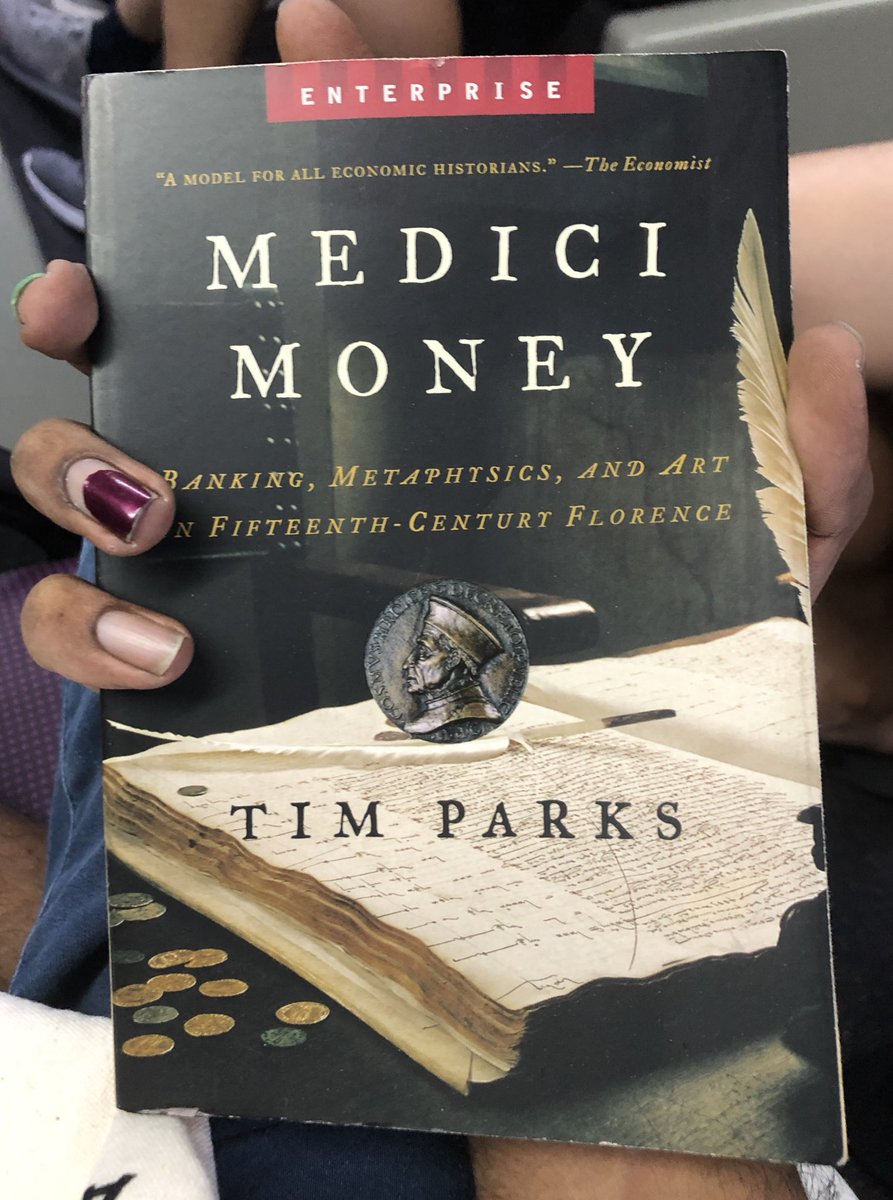
 Though probably not random, I’m guessing wealthy people died less...? Or maybe things were different then. Life before germ theory" title="The story begins... with a plague that kills one in three peopleThat’s 2/3rds of a Thanos Event https://abs.twimg.com/emoji/v2/... draggable="false" alt="😮" title="Face with open mouth" aria-label="Emoji: Face with open mouth">Though probably not random, I’m guessing wealthy people died less...? Or maybe things were different then. Life before germ theory" class="img-responsive" style="max-width:100%;"/>
Though probably not random, I’m guessing wealthy people died less...? Or maybe things were different then. Life before germ theory" title="The story begins... with a plague that kills one in three peopleThat’s 2/3rds of a Thanos Event https://abs.twimg.com/emoji/v2/... draggable="false" alt="😮" title="Face with open mouth" aria-label="Emoji: Face with open mouth">Though probably not random, I’m guessing wealthy people died less...? Or maybe things were different then. Life before germ theory" class="img-responsive" style="max-width:100%;"/>
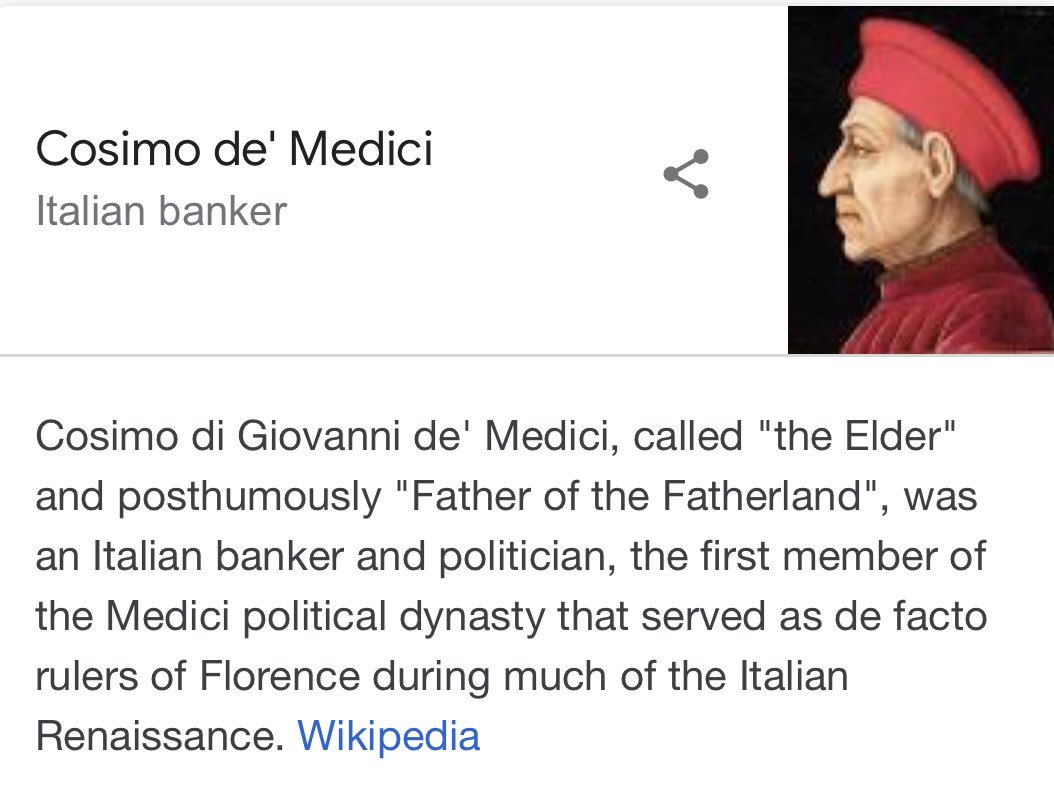 " title="The Medici bank was founded in 1397 by Giovanni di Bicci de’ Medici. (Bicci was his dad Averado’s nickname). It collapsed in 1494On his deathbed, Giovanni told his children to stay out of the public eye. His son Cosimo disobeyed this *dramatically* https://abs.twimg.com/emoji/v2/... draggable="false" alt="😂" title="Face with tears of joy" aria-label="Emoji: Face with tears of joy">" class="img-responsive" style="max-width:100%;"/>
" title="The Medici bank was founded in 1397 by Giovanni di Bicci de’ Medici. (Bicci was his dad Averado’s nickname). It collapsed in 1494On his deathbed, Giovanni told his children to stay out of the public eye. His son Cosimo disobeyed this *dramatically* https://abs.twimg.com/emoji/v2/... draggable="false" alt="😂" title="Face with tears of joy" aria-label="Emoji: Face with tears of joy">" class="img-responsive" style="max-width:100%;"/>
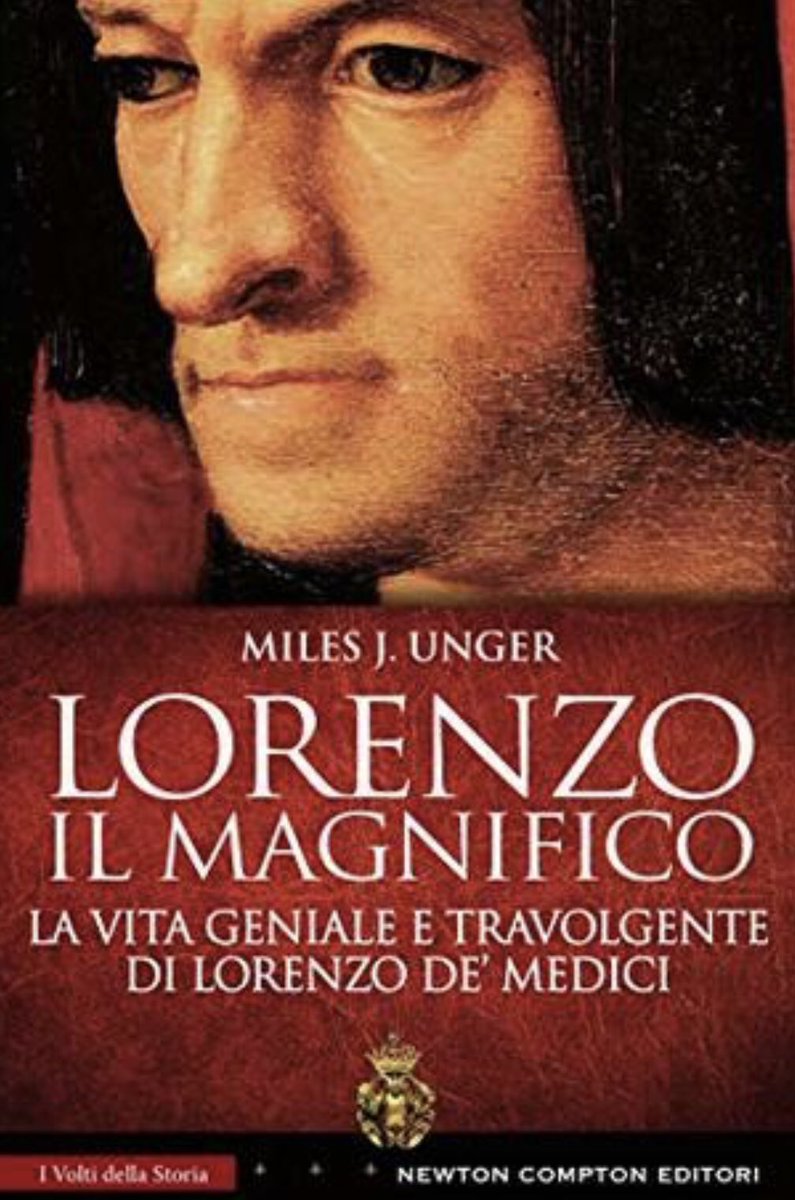
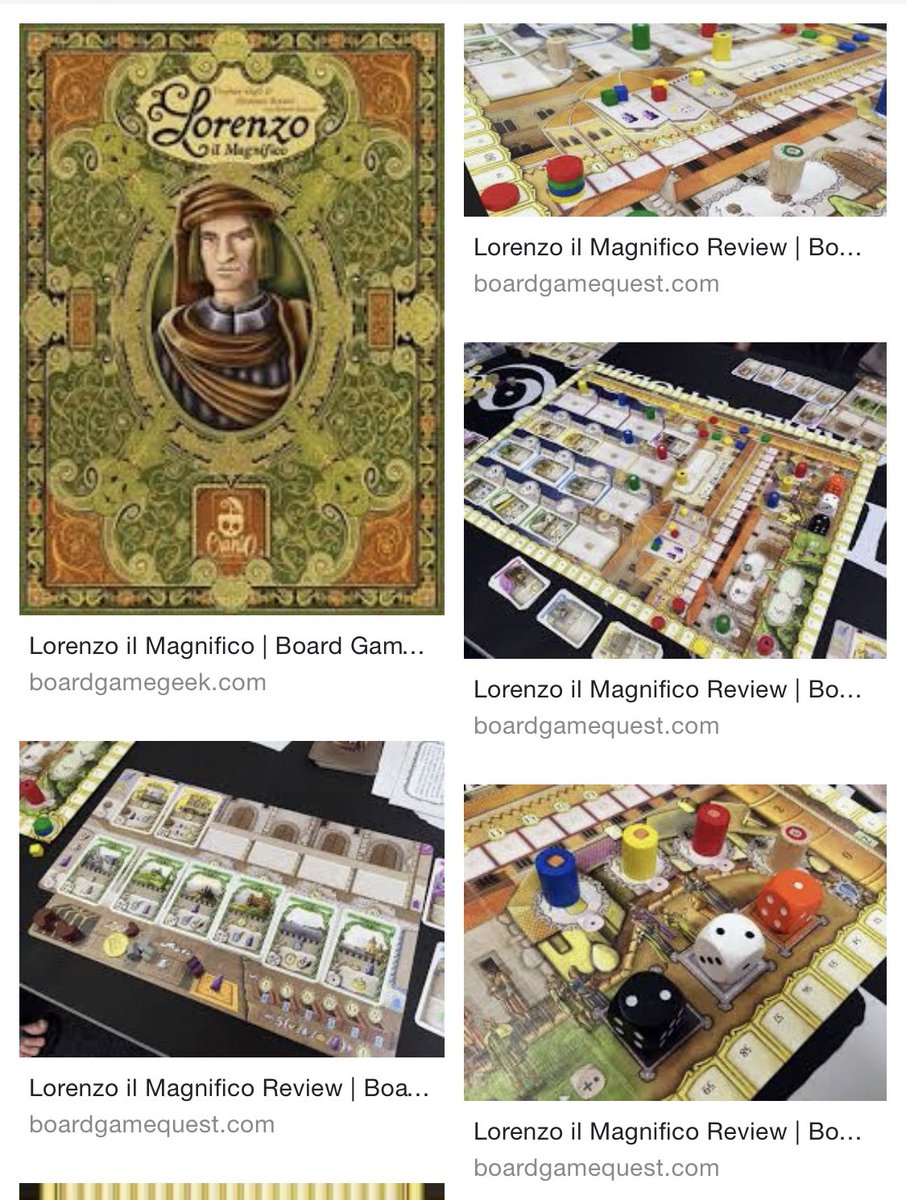
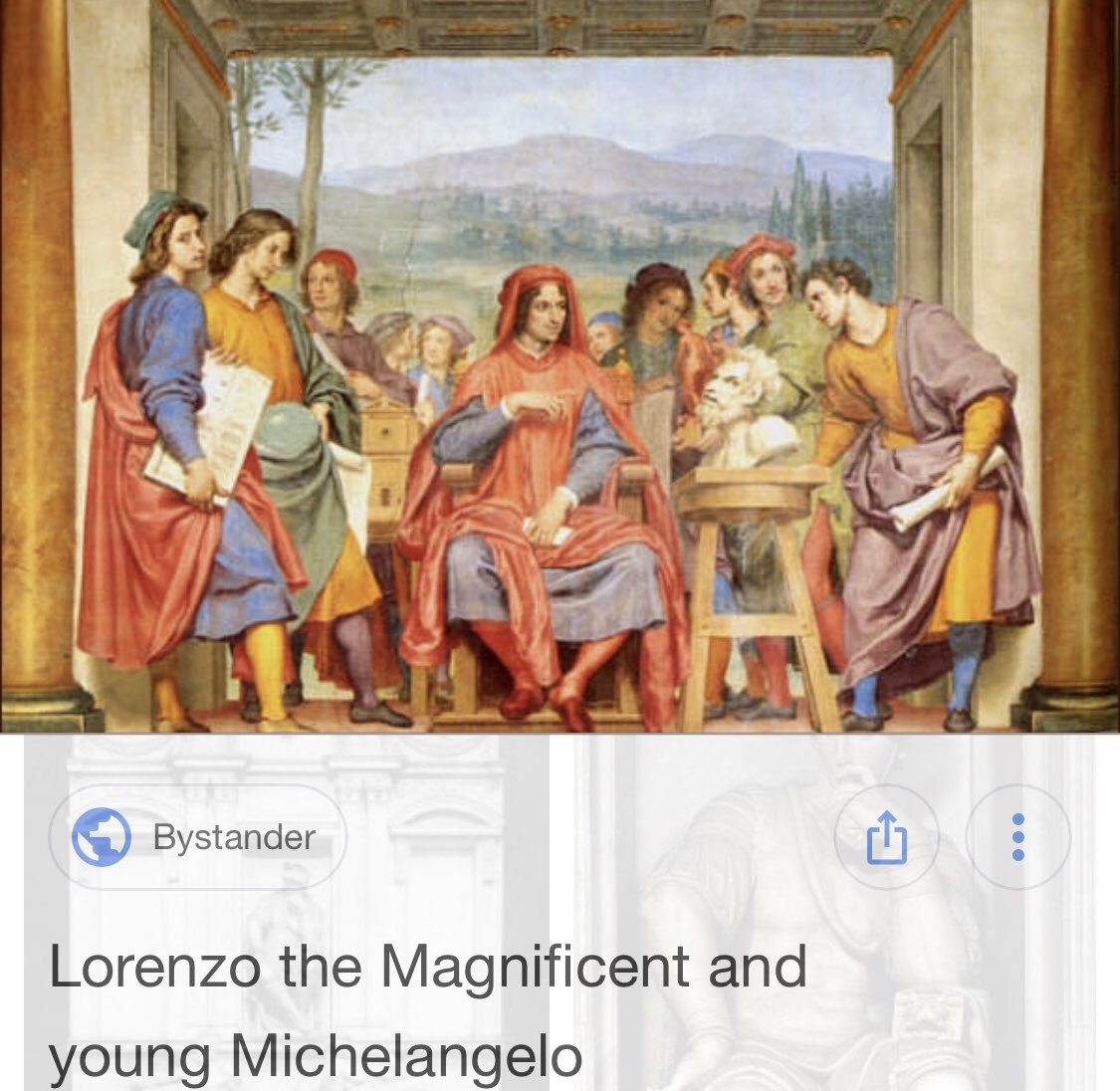
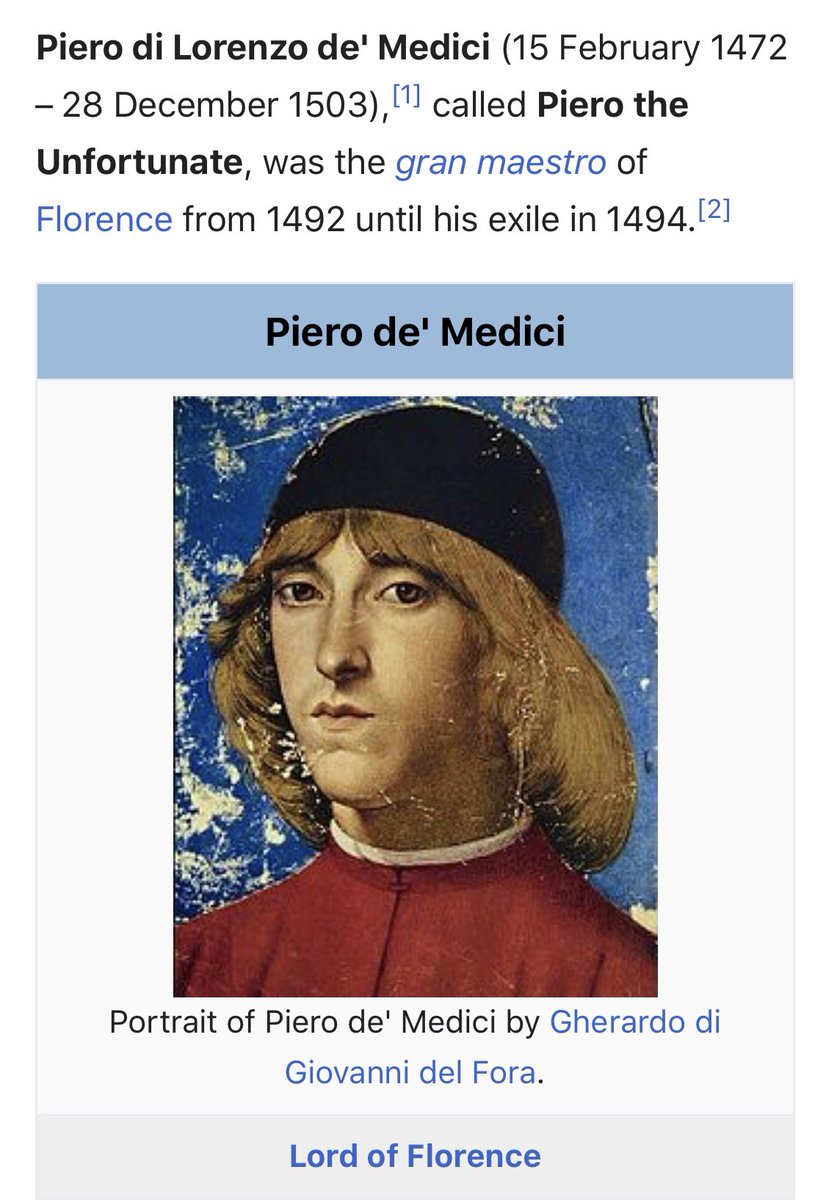
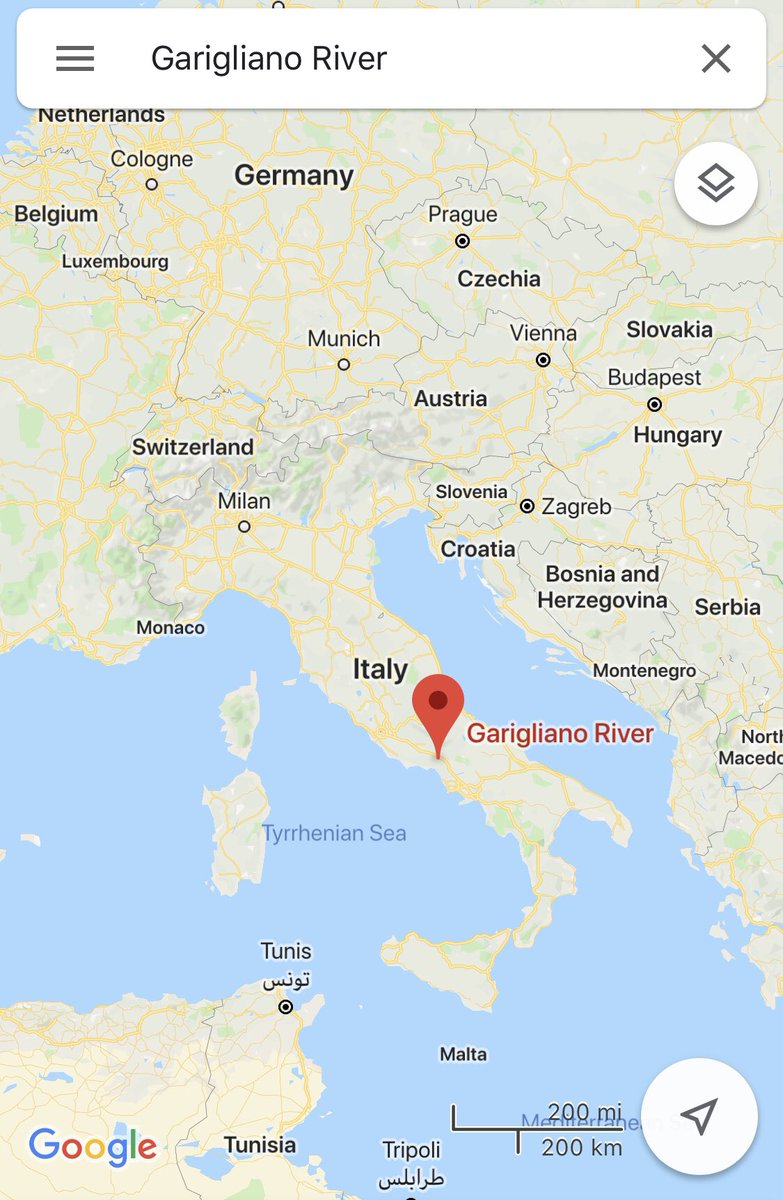
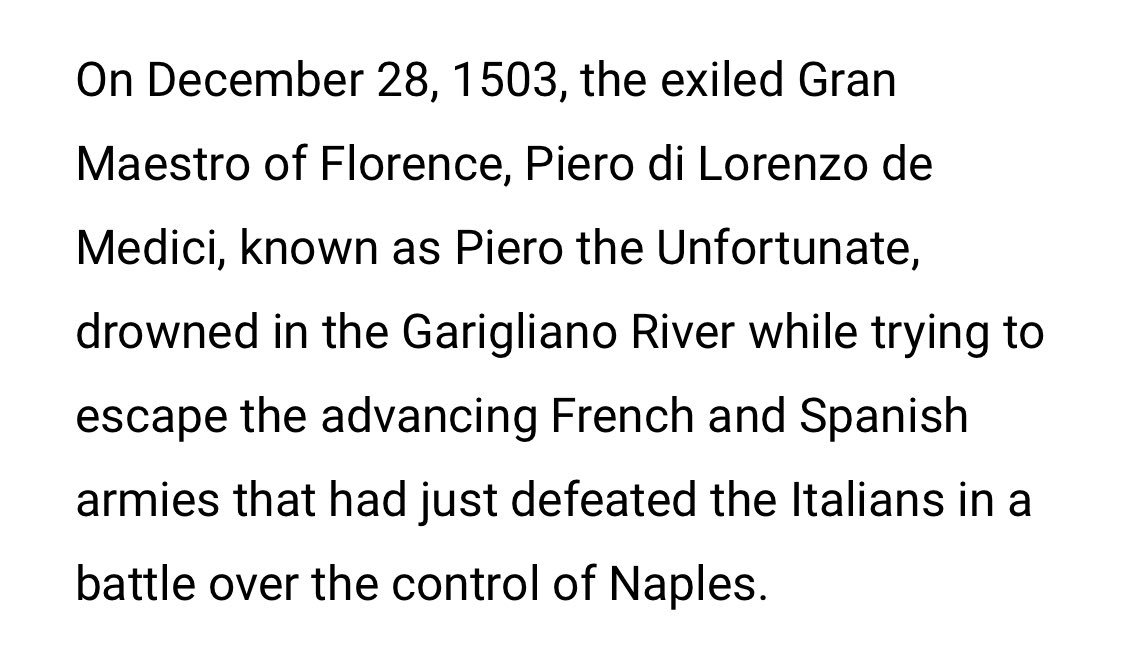
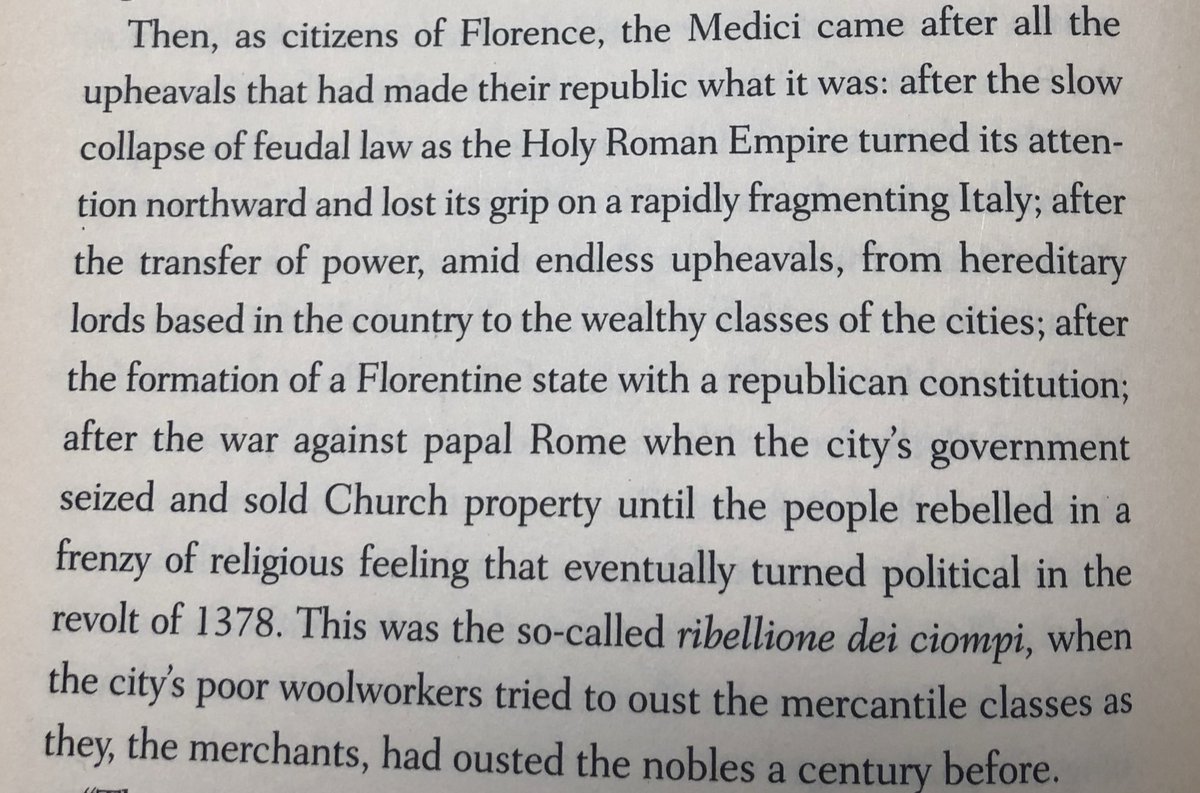

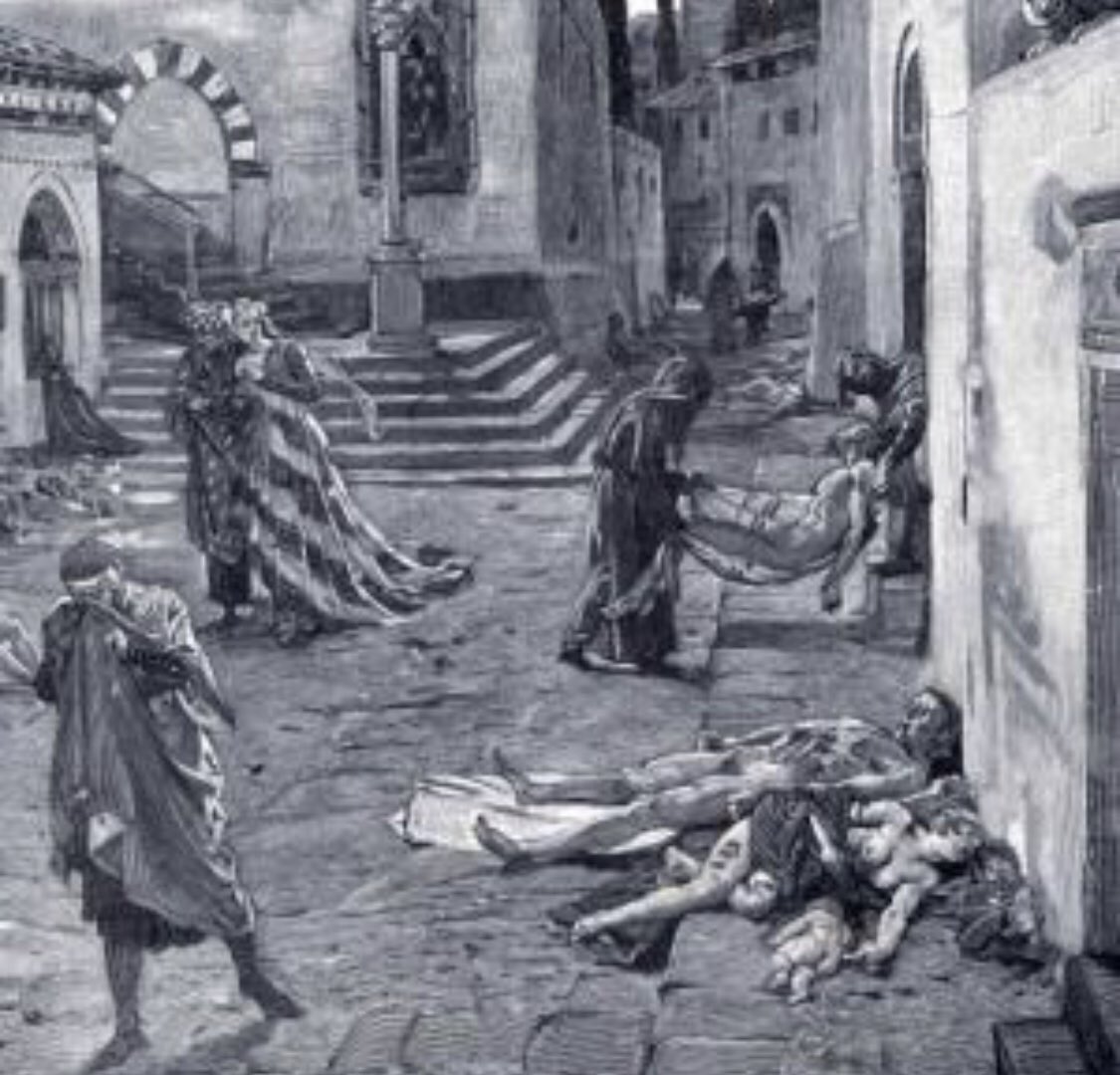
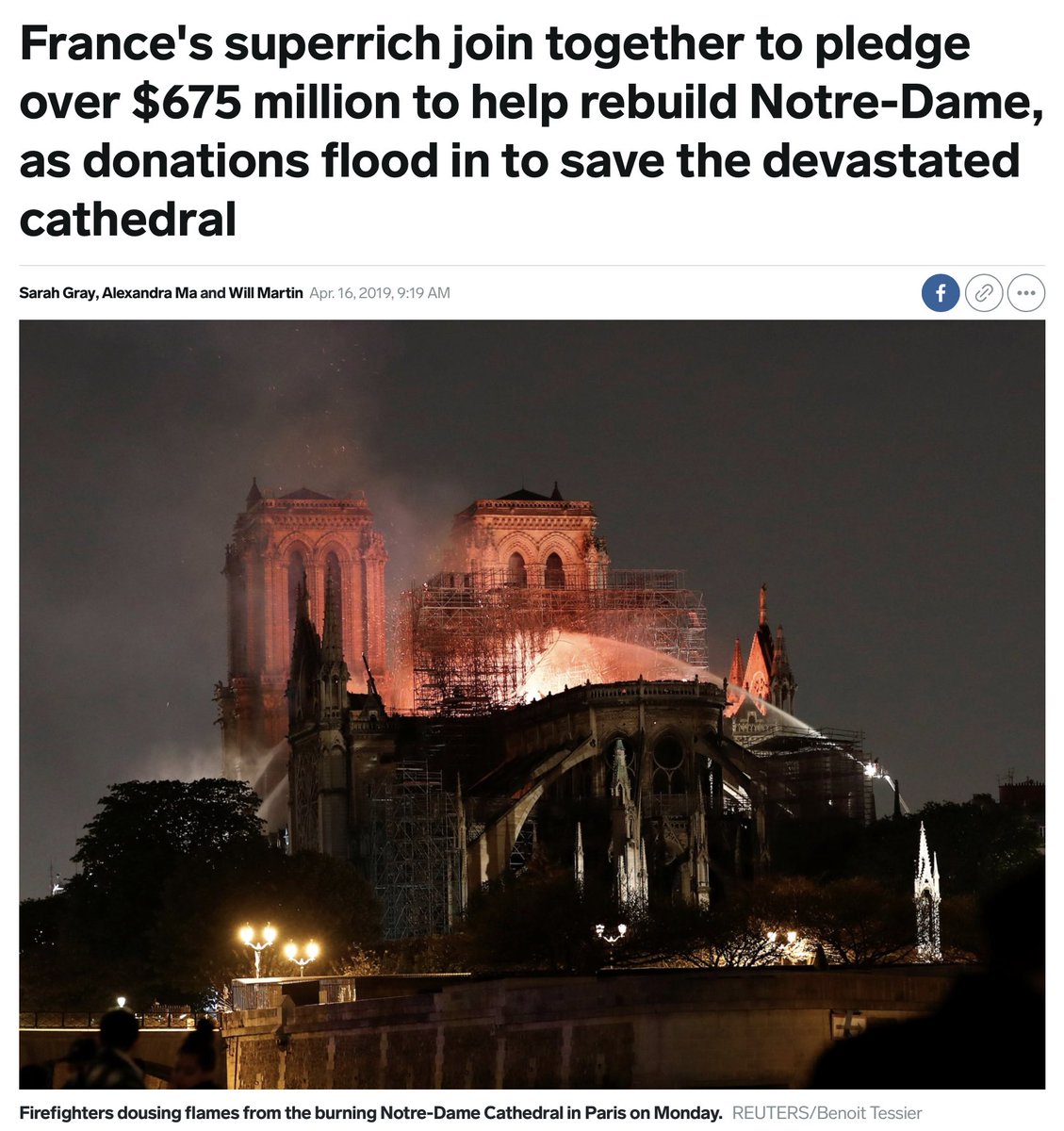 " title="Reginaldo delgi Scrovegni’s son Arrigo, “to expiate his father’s sin and clear the family name”, commissioned Giotto to fresco the Arena ChapelCosimo de Medici paid for the restoration of the Monastery of San Marco “in return for a papal bull clearing him of all his sins” https://abs.twimg.com/emoji/v2/... draggable="false" alt="🤔" title="Thinking face" aria-label="Emoji: Thinking face">" class="img-responsive" style="max-width:100%;"/>
" title="Reginaldo delgi Scrovegni’s son Arrigo, “to expiate his father’s sin and clear the family name”, commissioned Giotto to fresco the Arena ChapelCosimo de Medici paid for the restoration of the Monastery of San Marco “in return for a papal bull clearing him of all his sins” https://abs.twimg.com/emoji/v2/... draggable="false" alt="🤔" title="Thinking face" aria-label="Emoji: Thinking face">" class="img-responsive" style="max-width:100%;"/>

![“The banker is more dangerous, more powerful, when the traditional structures of society have given way. There is nothing now to obstruct the progress of money. [...] With no king on his coins, the banker is more or less obliged to be a kingmaker himself.” “The banker is more dangerous, more powerful, when the traditional structures of society have given way. There is nothing now to obstruct the progress of money. [...] With no king on his coins, the banker is more or less obliged to be a kingmaker himself.”](https://pbs.twimg.com/media/D4nQhHdUwAcNvId.jpg)


